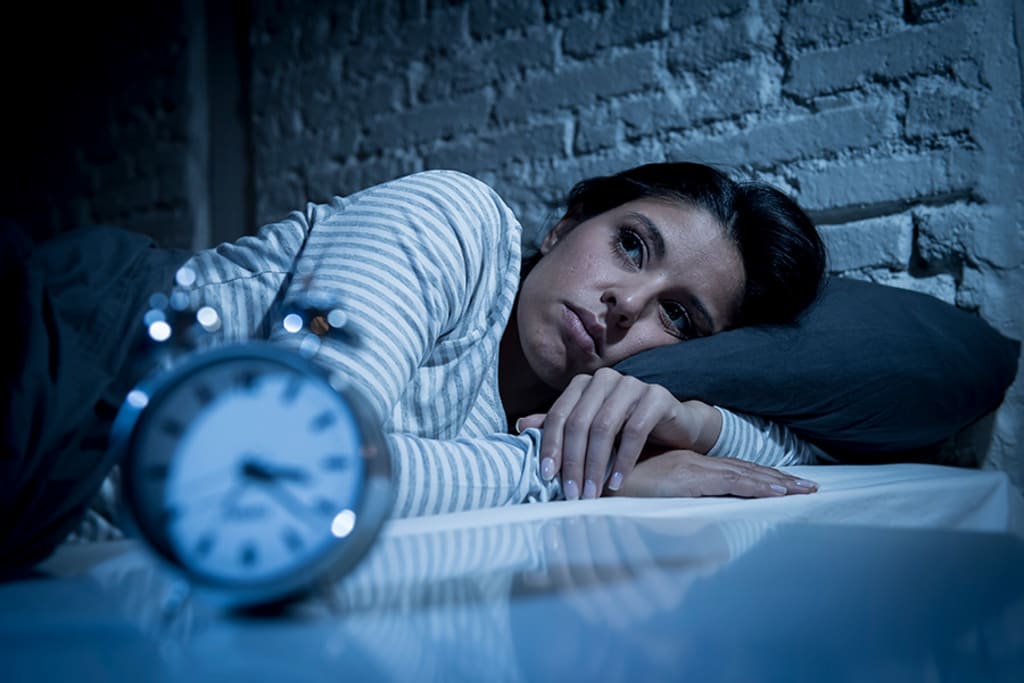Examining the Relationship Between Stress and Insomnia
Stress has become an almost unavoidable aspect of daily living in our fast-paced society.

The pressures we encounter, such as personal obligations and professional commitments, can negatively impact our emotional and physical health. Insomnia, or lack of sleep, is one of the most prominent signs of stress and affects millions of individuals globally. Comprehending the complex relationship between insomnia and stress is essential to formulating practical approaches to tackle both problems and enhance general health and wellness.
There is a complex reciprocal relationship between stress and sleep. Stress can interfere with sleep cycles, making it harder to get to sleep, stay asleep, or get restorative sleep. On the other hand, insufficient sleep can make stress worse, starting a vicious cycle that worsens both physical and mental health.
The link between stress and sleep is underpinned by intricate and diverse physiological systems. Stress causes our bodies to release chemicals like cortisol and adrenaline, which set off the body's "fight or flight" reaction. Although the body needs this reaction to deal with immediate threats, long-term stress can cause these hormones to remain elevated and interfere with the body's normal sleep-wake cycle.
Stress can also cause the brain's arousal and alertness centers to become active, which makes it harder to unwind and go to sleep. Rumination, racing thoughts, and anxieties can keep the mind active and hinder the body's ability to go into a deep, peaceful slumber. Furthermore, physical discomfort that degrades the quality of sleep might be a result of tension and soreness in the muscles brought on by stress.
On the other hand, lack of sleep can make people more vulnerable to stress because it affects their ability to think clearly, control their emotions, and develop coping skills. The brain's capacity to process information, control emotions, and make decisions is impaired when we don't get enough sleep. We might consequently become less resilient, more sensitive to stressors, and more prone to depressive, anxious, and irritable mood states.
Additionally, sleep is essential for maintaining physiological balance and controlling stress hormones. The body repairs and regenerates itself during deep sleep stages, and stress hormones are inherently reduced during this time. Thus, long-term sleep deprivation can cause a dysregulation of stress hormone levels, which in turn feeds the vicious cycle of stress and insomnia.
Stress and sleep are influenced by psychological and behavioral factors in addition to physiological ones. Insomnia symptoms can be brought on by stressful life events like pressure from a work, money issues, marital problems, or traumatic experiences. Maladaptive coping techniques can further worsen sleep issues and prolong the cycle of stress and insomnia. Examples of these strategies include binge drinking, taking excessive amounts of coffee, or relying too much on medicine.
Individual variances in resilience, personality traits, and coping mechanisms might also affect a person's vulnerability to stress-related sleep disruptions. While some people may be more susceptible to the negative effects of stress on sleep, others may be more resistive to stress and better able to maintain healthy sleep habits.
A multimodal strategy that addresses both the underlying stresses and sleep problems is necessary to address the link between stress and insomnia. Cognitive-behavioral therapies, which include cognitive restructuring, relaxation training, and stress management techniques, can assist people in creating flexible coping mechanisms and lessen the negative effects of stress on their ability to sleep.
Furthermore, encouraging healthy sleep hygiene behaviors can improve resilience to stress and improve the quality of one's sleep by establishing a restful nighttime habit, adhering to a regular sleep schedule, and optimizing the sleep environment. Reducing the amount of time spent on stimulating activities and electronics before bed can also help with the transition to sleep and increase the effectiveness of sleep.
To treat severe sleep problems brought on by persistent stress, pharmaceutical therapies, such as sleep aids or drugs for anxiety or depression, may occasionally be required. These should, however, only be taken sparingly and under a doctor's supervision as they may have unfavorable side effects or dependability issues.
Additionally, treating underlying lifestyle issues like inactivity, sedentary behavior, and poor diet that lead to stress and sleep issues can have a significant positive effect on general health and wellbeing. Regular exercise, mindfulness or meditation, and the development of social support networks can all help to improve sleep quality and resilience to stress.
Additionally,
The negative effects of occupational stress on sleep and general health can be lessened by fostering a culture of workplace wellness that places a high priority on employee well-being, encourages work-life balance, and offers resources for stress management and sleep hygiene.
In summary,
There is a complicated and reciprocal relationship between stress and insomnia that takes into account behavioral, psychological, and physiological aspects. For the purpose of creating efficient interventions to address stress and sleep disruptions, it is imperative to comprehend the mechanisms behind this link. People can stop the cycle of stress and insomnia and enhance their general health and well-being by putting stress management techniques into practice. These measures also encourage resilience and excellent sleep patterns.





Comments
There are no comments for this story
Be the first to respond and start the conversation.